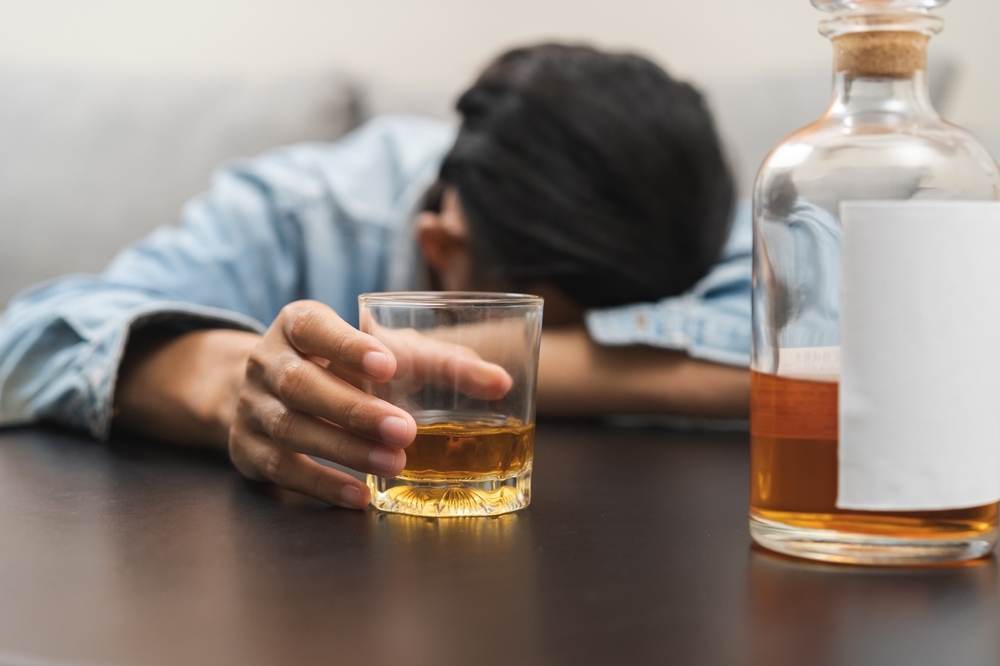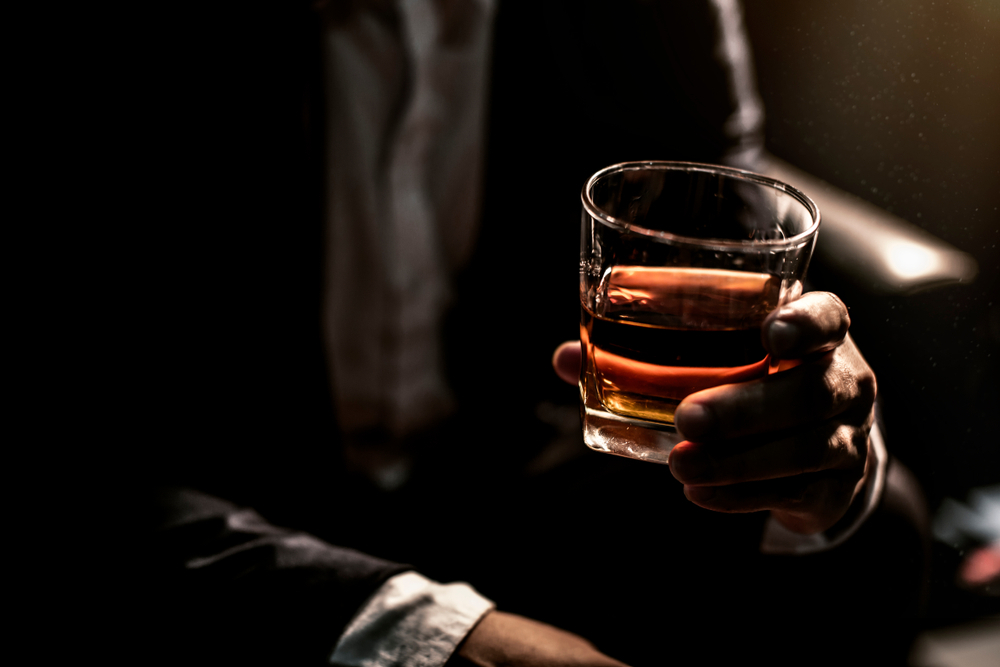Last Updated:
March 26th, 2025
Our holidays often go hand-in-hand with drinking, whether with locally brewed beers in small European pubs or cocktails beside the beach. As we travel abroad, differences in language, customs and cultural norms usually take us out of our element.
We often drop our guard and become less vigilant with our purchases, which can have dire consequences when drinking. The World Health Organization estimates that a quarter of all global alcohol consumption is unrecorded, including home-brewed and counterfeit alcohol.
We look at the inherent dangers of counterfeit alcohol and aim to guide you toward safer drinking while abroad.
How do we classify counterfeit alcohol?
Counterfeit alcohol, as defined by the UK’s Food Standards Agency, refers to fake or illegally produced alcohol made in unlicensed distilleries or homes. Once it is packaged to resemble a well-known brand, it is deemed as counterfeit.
This intentional deception is designed to mislead you into thinking you’re buying legitimate goods. While the term “Illicit alcohol” includes any illegally produced alcohol, counterfeit alcohol specifically aims to mimic genuine brands.
Is counterfeit alcohol more common in certain countries?
In the UK and across Europe, there is a relatively low rate of counterfeit alcohol production. While the rate is comparatively low compared to some parts of the world, it is not zero. One report from the EU Intellectual Property Office (pg. 5) estimates counterfeit alcohol costs the EU €3 billion annually.
As recently as September of 2024, warnings were issued in Jersey after a large batch of counterfeit Vodka was discovered, made in imitation of the popular Scottish brand Glen’s Vodka.
The risk of drinking dangerous fake alcohol increases for people who visit more impoverished regions of the world. Recent tragic cases of severe sickness and deaths from counterfeit alcohol include:
- Turkey: In December 2024, more than 30 people died, and dozens were hospitalised from counterfeit alcohol poisoning in Istanbul, with over 500 unregulated bottles being discovered ready for sale.
- Fiji: Again in December of 2024, 7 tourists were hospitalised in Viti Levu, Fiji’s largest island after suspected cases of counterfeit alcohol.
- Laos: 6 tourists visiting Laos, including European nationals, died in November 2024 from methanol-poisoned alcohol. The victims were thought to have consumed these drinks in Vang Vieng City, popular with backpacking tourists.
These recent cases illustrate a growing concern toward counterfeit and illicit alcohol in less developed regions of the world. Governments have since published travel announcements urging tourists to be more vigilant about the source and quality when buying alcoholic drinks abroad.
As we mentioned, the risk of drinking counterfeit alcohol in your home country is never zero, but counterfeit alcohol seems to be more prevalent in developing countries.
Increased risk of buying fake alcohol abroad may be the result of weak regulatory enforcement, allowing production to thrive. Additionally, countries with significant income equality may increase the demand for low-cost alcohol, creating dangerous opportunities for counterfeiters. Keep these factors in mind for countries you wish to visit in the future.
Which chemicals are added to make counterfeit alcohol?
Drinking counterfeit alcohol can have devastating and lethal effects on your body. As illegal alcohol manufacturers strive to cut corners for financial gain, they introduce harmful substances known as “adulterants.” Commonly used adulterants include:
- Methanol: Methanol is sometimes added as a substitute for ethanol in fake alcohol. Drinking only small amounts (as little as 10mL) can lead to permanent blindness. A mouthful (just 30mL) is enough to be fatal.
- Industrial solvents: Substances such as isopropanol or acetone are sometimes added in the production of fake alcohol. Even at low doses, these adulterants can cause nausea, organ damage and severe toxicity.
- Ethylene glycol: Found in most antifreeze liquids, it is sometimes added to create a sweetness in counterfeit alcohol. It’s highly poisonous and leads to kidney failure, brain damage and death.
Immediate health risks
If you’re travelling abroad and happen to drink counterfeit alcohol, there may be a rapid onset of severe symptoms. The immediate dangers of ingesting commonly added adulterants can include:
- Nausea and vomiting
- Severe sharp headaches
- Dizziness, disorientation and confusion
- Blurred vision
- Organ damage (liver and kidneys)
Long-term health risks of unregulated alcohol
Survivors of counterfeit alcohol poisoning can face debilitating health consequences that last a lifetime. Severe long-term risks can include:
- Chronic organ damage: Irreversible harm to the liver, kidneys and heart can occur after drinking counterfeit alcohol.
- Neurological disorders: Memory loss, cognitive impairments and tremors are common unfortunate outcomes of sustained toxicity.
- Dependency and addiction: Counterfeit alcohol may not contain extremely harmful substances, but may have other brands of drink added to it. Fake packaging and labelling mean you don’t know how much alcohol is in your drink. This increases the likelihood of addiction and dependency forming.
How to spot counterfeit alcohol while abroad
Being abroad can be overwhelming, especially when you’re trying to exercise caution for yourself and your family. Being out of your depths in language, culture and locale may affect your decision-making.
While abroad, many of us make an active decision to “switch off” or go into “holiday mode,” making us less vigilant about the things we buy. This is a risky game to play for alcohol., as counterfeit production may be closer to you than you assume.
Using the Food Standard Agency’s “Four P’s” method can help you to remember vigilance when around alcohol in another country. The steps to remember are:
- Product: Place some trust in your senses and experiences. Pay attention to the smell and taste of alcohol you’ve tried before at home. A chemical, bitter or overly sweet taste may be cause for concern.
- Price: As a loose rule of thumb, if the price seems too good to be true, it likely is the case. Counterfeit alcohol is sold at incredibly low prices, especially in developing countries. Research the average price of the alcohol you’re buying, avoiding it if it’s well below the normal price.
- Packaging: Being abroad can make us feel tantalised to try something new. Again, keep your eyes sharp for signs that don’t sit right with you. Scrutinise the packaging text for blurry fonts or misaligned and misprinted branding. Avoid abnormal bottle shapes and know what the signs of safety and quality should be for the brand, such as holograms and tamper-proof seals.
- Place: Finally, understand and contextualise the place in which you’re purchasing the product. Research reputable and trusted outlets. The same regulations and safety procedures your experience back home should not be taken for granted when travelling abroad.
Applying all Four Ps in moderation can help you remain more vigilant and reduce the risk of drinking something dangerous while abroad. If you or a friend think you may have drunk fake alcohol, you need to seek immediate medical attention. Always ensure you know the contact number of emergency services in your holiday destination.
The journey to sobriety
Whether abroad or at home, becoming dependent on alcohol is a slippery slope toward addiction and substance abuse. For many, the search for help comes too late, which is where we step in.
Here at UKAT, we strive to support you to break free from addiction. Our alcohol detox programmes deliver personalised care at every stage of recovery, with aftercare and external support available for you and your loved ones.
Reach out to us today to take the first step on the path of lifelong sobriety. The help you need is only one click or phone call away.
(Click here to see works cited)
- “Unrecorded Alcohol: What the Evidence Tells Us.” World Health Organization, World Health Organization, www.who.int/publications/i/item/9789240044463
- “Fake Alcohol.” Food Standards Agency, www.food.gov.uk/safety-hygiene/fake-alcohol
- The Economic Cost of IPR Infringement In …, euipo.europa.eu/tunnel-web/secure/webdav/guest/document_library/observatory/resources/research-and-studies/ip_infringement/study8/wines_and_spirits_en.pdf
- Jersey, States of. “Government of Jersey.” Gov.Je, www.gov.je/StayingSafe/ConsumerProtection/ProductSafety/pages/productrecalldetails.aspx?RecallId=1364
- “Tainted Alcohol Consumption Kills 37 in Istanbul since Nov 1 – Türkiye News.” Hürriyet Daily News, www.hurriyetdailynews.com/tainted-alcohol-consumption-kills-37-in-istanbul-since-nov-1-203669
- “7 Foreign Tourists Hospitalized in Fiji after Suspected Alcohol Poisoning.” NBCNews.Com, NBCUniversal News Group, 16 Dec. 2024, www.nbcnews.com/news/world/7-foreign-tourists-hospitalized-fiji-suspected-alcohol-poisoning-rcna184322.
- Drury, Flora. “Holly Bowles Sixth to Die of Suspected Methanol Poisoning in Laos.” BBC News, BBC, 22 Nov. 2024, www.bbc.com/news/articles/ced94znq424o.
- Cursiefen C, Bergua A. Acute bilateral blindness caused by accidental methanol intoxication during fire “eating”. Br J Ophthalmol. 2002 Sep;86(9):1064-5. doi: 10.1136/bjo.86.9.1064. PMID: 12185141; PMCID: PMC1771266.
- “Methanol Poisoning.” MSF, 8 Nov. 2024, methanolpoisoning.msf.org/en/.



